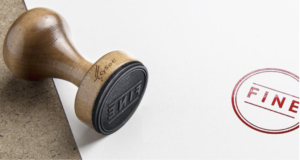CFTC Fines UBS Over Deleted Voice Recordings
Posted by Colin Lambert. Last updated: October 14, 2021
The US Commodity Futures Trading Commission (CFTC) has fined UBS $500,000 for an error that saw over 1,000 of audio recordings from trading floors deleted. The finding, which was settled by UBS which self-reported the error, found that voice files were being deleted after just one day, instead of the one year required under CFTC rules.
In June 2019, UBS, to comply with its recordkeeping obligations as a swap dealer, implemented multiple software systems to operate its trader turret communication devices; record calls occurring on these trader turrets; and store the voice recording files that were generated from the recorded calls.
CFTC says the recording system had a known failure in which, at times, the multiple systems failed to synchronise certain call data, including the trader’s identity, which meant it would not transfer to the bank’s voice recording system along with the corresponding voice recording. This synchronisation failure created a population of voice recording files that were not assigned to a particular trader, CFTC says, adding these unassigned voice recording files, categorised as “Trader 0” recordings, were transferred to UBS’s long-term storage systems where they were to be retained for five years.
As of July 8, 2019, however, UBS began prematurely deleting these files which included pre-execution swaps trade information that were required to be retained for one year. This was a result of a technology analyst believing that the voice recordings were test files that did not need to be retained and re-designating those files which reset the retention period for these files from five years to one day, CFTC says.
In December 2019, UBS inadvertently learned about the premature deletion of the audio files from its systems while it was searching for, but not finding, specific voice recording files that it knew should have been in its retention systems. Upon discovery of the erroneous deletions of recordings, the bank conducted an internal review to determine the universe of impacted voice recording files and discovered the analyst’s error.
Upon discovering its potential violation of the regulations, CFTC says UBS promptly self-reported the violation to CFTC staff via telephone, followed by formally submitting a comprehensive written self-report. The bank also cooperated with CFTC staff in its investigation and proactively engaged in remedial procedures to ensure no “Trader 0” recordings are prematurely deleted in the future.




